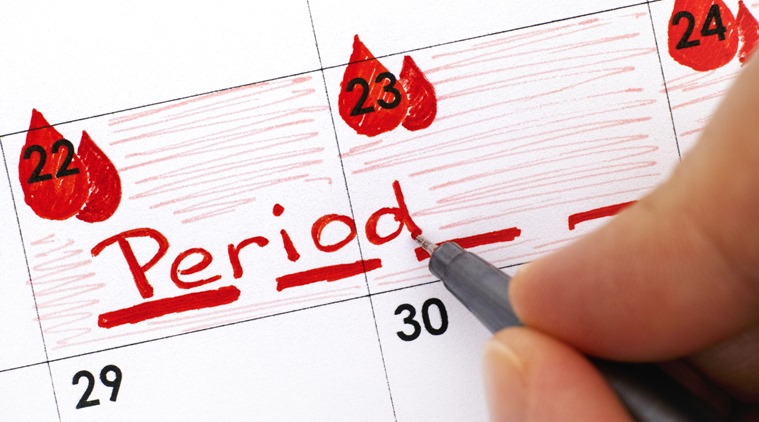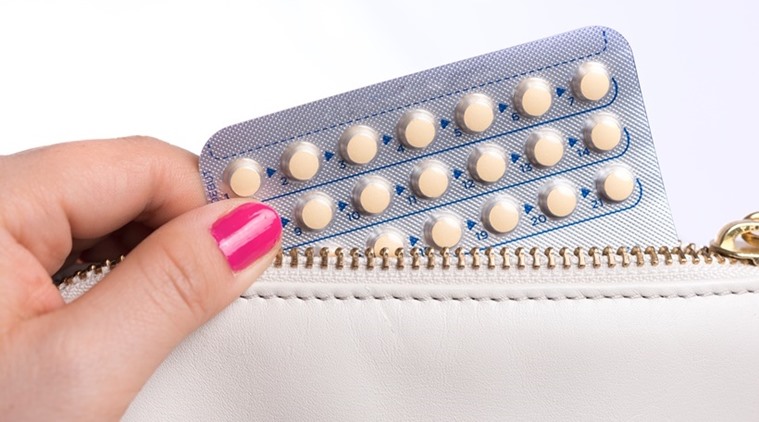- India
- International
Understanding your menstrual cycle: What’s normal and what’s not
In general, a cycle after 25 days to 35 days is considered normal, during which using two to three sanitary napkins per day is used.
 Menstrual cycle is counted from first day of menses to first day of next menses. (Photo: Getty Images/Thinkstock)
Menstrual cycle is counted from first day of menses to first day of next menses. (Photo: Getty Images/Thinkstock)
For a woman, her menstrual cycle is an important factor that influences and plays a significant role in her overall well-being, including her reproductive health. A woman experiences her menstrual cycle due to the monthly hormonal changes in the body that occur from menace to menopause, where each month one ovary releases an egg. A woman first experiences her menstrual ‘period’ at an early age, usually between 12 and 15 years of age. This cycle typically lasts two to seven days, varying from person to person. Menstrual cycle is counted from first day of menses to first day of next menses.
Understanding your cycle is imperative, considering that an irregular change may mean something. Here are a few typical occurrences that a woman may or may not come across, when menstruating.
Spotting
 If you are on the pill and your spotting does not go away naturally, you must consult your doctor. (Photo: Getty Images/Thinkstock)
If you are on the pill and your spotting does not go away naturally, you must consult your doctor. (Photo: Getty Images/Thinkstock)
“Usage of birth control pills often leads to sudden spotting. However, few women who are not on birth control pills experience spotting too. This is due to a quick surge and decline in estrogen and may occur at any stage during reproductive years. If you are on the pill and your spotting does not go away naturally, you must consult your doctor about a high dose pill. If you have been diagnosed with polyps, retrieval can be done to check for any pre-malignancies or malignancies,”says Dr Sushma Tomar, obstetrician and gynaecologist, Fortis Hospital, Kalyan.
Heavy Flow
 If you experience very heavy flow during your period, you must immediately visit a doctor. (Photo: Getty Images/Thinkstock)
If you experience very heavy flow during your period, you must immediately visit a doctor. (Photo: Getty Images/Thinkstock)
If you suddenly begin to experience heavy flow that requires a change in pad or tampons more than six times in a day, do not ignore this sign. This could a sign for fibroids, which are abnormal growths in the uterus that alter the uterine wall and could be benign tumors or non-cancerous. Sometimes, these tumors are quiet large and can cause tremendous pain, and tend to become common as women age. Fibroids shrink or typically disappear during menopause as estrogen depletes. However, dealing with the pain is subjective to one’s tolerance level. Fibroids can be removed through ultrasound-guided surgery, Uterine Artery Embolization, Hysterectomy or other methods.
ALSO READ | From stress to PCOS: Reasons your period is delayed or has suddenly stopped
Irregular Period

The time between each period is almost similar, sometimes a day or two early or late for most women. However, for some the interval between periods differs substantially. Irregularity of period may be associated with stress, weight loss or gain. “Perimenopause, the time frame before menopause setting in may also be another symptom; you may experience hot flashes, dizziness, change in sleep patterns, anxiety, etc. Irregular menses occur due to many reasons like hormonal imbalance, fibroid uterus, uterus cancer, ovarian cancer, pelvic inflammatory diseases, pregnancy, breast feeding, polycystic ovarian diseases, eating disorders and premature ovarian failure. In all these conditions amount of bleeding and dates of bleeding changes. If your change in period is sudden, do not waste time and see your doctor immediately. If the problem goes undetected, it lead to further and more serious complications,” she adds.
 Breastfeeding mothers may also experience irregular period. (Photo: Getty Images/Thinkstock)
Breastfeeding mothers may also experience irregular period. (Photo: Getty Images/Thinkstock)
No Period
Failure in getting your period is often subjected to being pregnant, if irregular cycles are not the concern. Some women may yet be fertile even if they’re menstruating; this is due to an overlap of periods at the commencement of ovulation. If a woman engages in sex at the end of her period there is a possibility of getting pregnant as the sperm lasts for at least 72 hours in the reproductive tract. If you are not ready being pregnant, protection is key. If unprotected sex is had, make sure to look up emergency contraception available at pharmacies.
ALSO READ | Menstrual Hygiene Day 2019: All about alternative, eco-friendly period products
Overconsumption of Ipill/ Side Effects
Over use of Ipills causes lower abdominal pain like cramps, breast pain, nausea, headache, tiredness, intermittent bleeding, giddiness, heavy and irregular periods. But all these symptoms go away in a day or two. It may also cause blood clot and sometime stroke, so it should not be taken unless it is necessary.
Abuse of Period Altering Medication
Taking medications to repeatedly prepone or postpone your period with hormones makes your cycle irregular, changing the ovulation date. You can have scanty menses or heavy flow after that.
Apr 18: Latest News
- 01
- 02
- 03
- 04
- 05

























